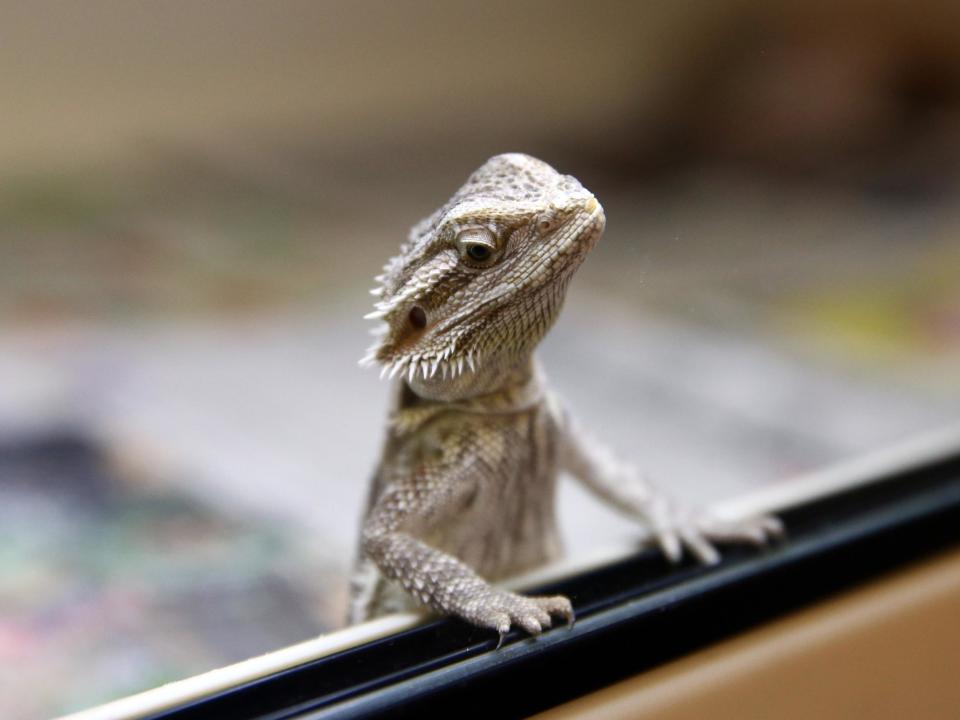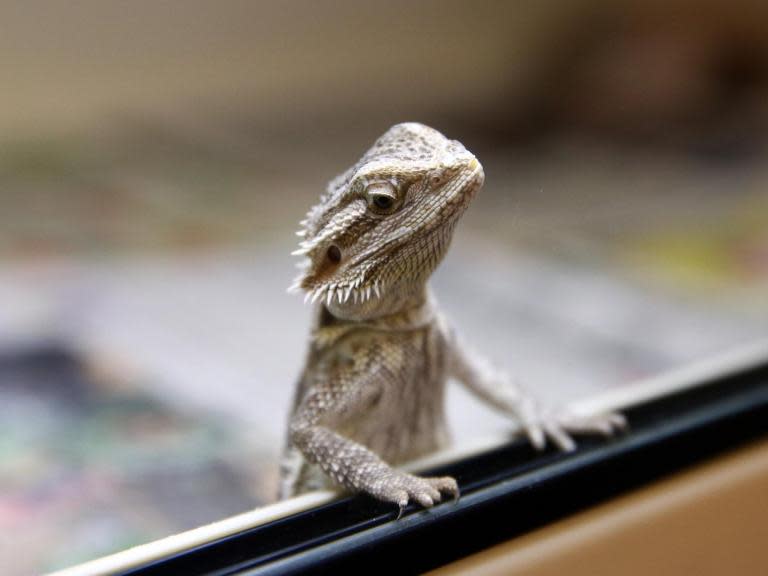Climate change could be making lizards less intelligent, finds study
Exposing lizard eggs to warmer temperatures during incubation makes the individuals that hatch from those eggs less intelligent, according to new research.
Bearded dragons, a popular pet species, are surprisingly smart reptiles, but this study suggests that their brainpower could be threatened by global warming.
To investigate the effects of heat on intelligence, scientists at the University of Lincoln incubated a clutch of bearded dragon eggs at the elevated temperature of 30°C, while keeping another clutch incubated at the more normal temperature of 27°C.
Once hatched, the young dragons were raised in similar environments.
Around a year later, when the lizards were old enough, their intelligence was tested using techniques generally applied to gauge animal “social intelligence” – that is, their ability to learn from others.
The dragons were shown videos of other members of their species opening a sliding door. They were then tested to see if they could imitate the behaviour to receive a food reward.
The scientists found that not only did the dragons incubated at warmer temperatures have less success in getting the door open, those that managed it took a lot longer.
In recent years, an increasing body of evidence has suggested that reptiles are not the slow-witted animals they were traditionally assumed to be.
Experiments have shown that tortoises are able to outperform rats when finding their way through mazes, and monitor lizards are capable of complex problem solving.
Previous work has demonstrated that high nest temperature negatively impact the brain power of geckos, as well as their ability to survive in the wild.
Intelligence is a useful attribute. If it is threatened by climate change, then so too is the survival of these reptiles.

 Yahoo News
Yahoo News 

